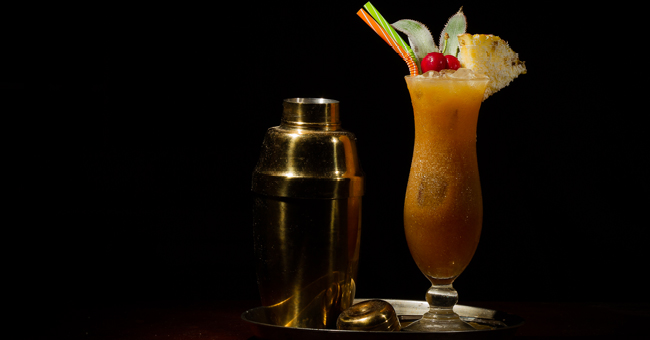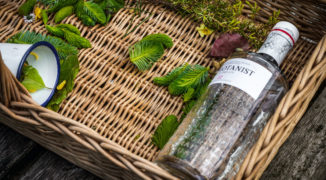From syrups to amaro, more and more bartenders are turning to housemade ingredients over purchasing commercially available goods. While DIYing instead of buying isn’t always the right choice, there are some ingredients that really do make a huge difference when made from scratch. Coconut cream, as prepared by Oron Lerner of Tel Aviv’s French 57, is one of them.
An integral component in tiki drinks and tropical staples like the piña colada, coconut cream can be somewhat labor-intensive to make, which might explain why so many bars still rely on the canned (or plastic squeeze-bottle) versions. Lerner admits the process can be a bit time-consuming — and perhaps isn’t for every bar — but the final product is, in his eyes, worth the effort.
“It’s a tedious process, and batching enough for 2-3 months will take a whole day of work,” he says, adding that the team refers to it as “fun day with coconuts.” (“but it isnt always so much fun”). However, he says, the end result “is the richest coconut cream you have ever tasted. The triple-stocking makes sure it remains liquid enough so it can be worked into cocktails, the spices add an exotic touch to its flavor and the use of real coconuts keeps its fat content at a natural level – 17%.”
The end result is employed in a few drinks at French 57, among them the Pearl Diver, Coconaut and non-alcoholic Designated Diver. The coconut cream also shows up in the Fernet Colada, a drink on their off-limits “Black Menu” (which requires guests to sign a waiver before ordering) that started as an inside joke and became a bestseller.
If you’re ready to try your hand at the multi-day process (and reap the delicious, creamy rewards), see below for Oron’s play-by-play:
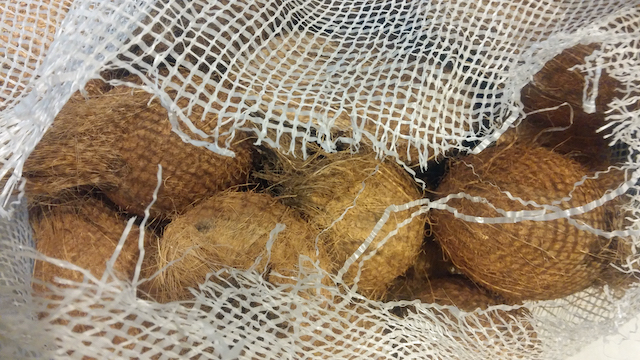 Make sure your coconut is ripe — Oron suggests picking it up, shaking it and listening for liquid inside. (Photo: All images courtesy of Oron Lerner)
Make sure your coconut is ripe — Oron suggests picking it up, shaking it and listening for liquid inside. (Photo: All images courtesy of Oron Lerner)
First, pick a ripe, mature coconut — look for the brown and fibery ones that, when shaken, make slush sounds indicating there is still liquid inside.
Then, crack it with a hammer in two, and discard the liquid, keeping only the white flesh that is attached to the hard shell.
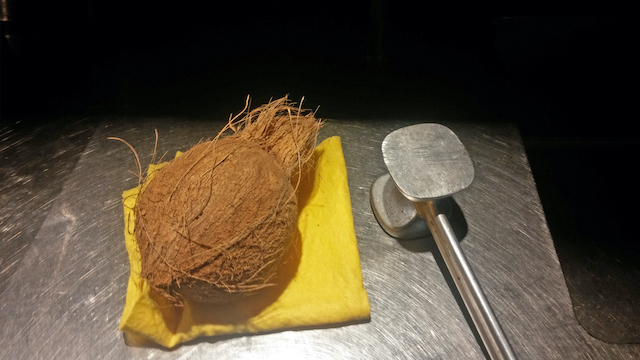
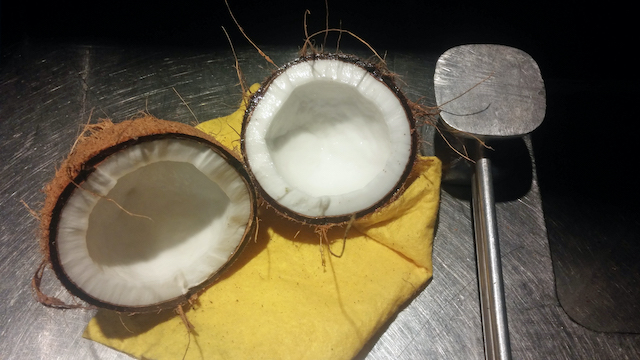
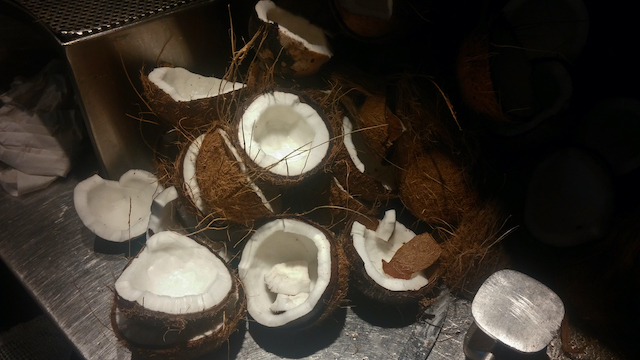
You then sprinkle the coconut with saffron, nutmeg, cardamom and rose petals, and bake it for 20-30 minutes (125 celsius) until the edges begin to caramelize and turn a rich brown.
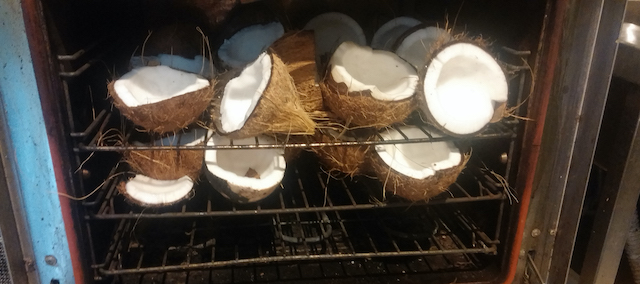
Then, using an oyster-knife or other paring knife, you separate the white flesh from the hard shell (made easy by the baking), and with a zester, carefully remove the brown coconut skin still attached to the white flesh.
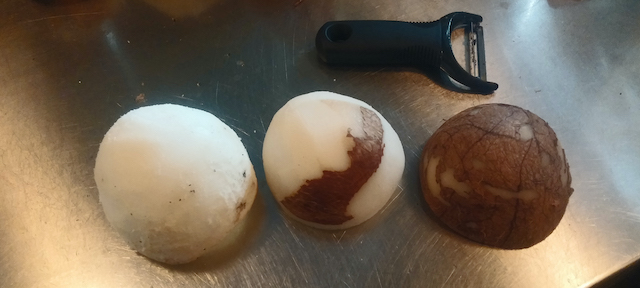
Grind the coconut into a fine mash. Add 400 grams of organic cane sugar and 400 milliliters of coconut milk (17% fat, no preservatives, no concentrates) and cook it until it reduces in volume by half.
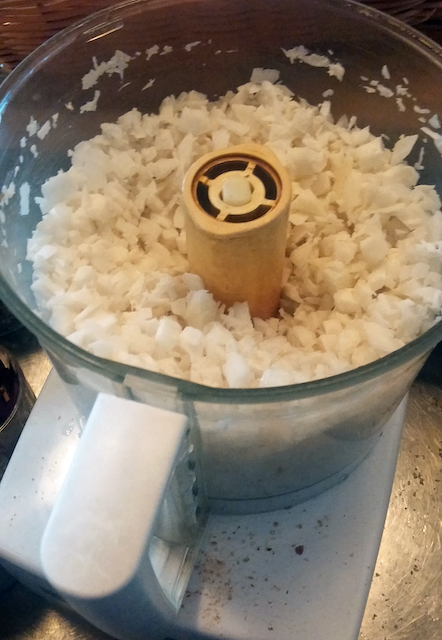
When done in large batches (we do 25-50 coconuts per batch usually), we triple stock it:
Divide all ingredients into 3 equal parts, cook the first third for an hour and a half, then strain it and add its liquid to the second third and cook for another 45 minutes, strain and add the reduced liquid to the last third, and bring to a boil. In the last cooking, we add a tablespoon of Chai Masala spice mix (cardamom, allspice, roses, cinnamon, star anise, cloves and more).
Point of notice: it will separate in the fridge into 2 layers — the cream and the milk, both sweetened, and it is important to combine the two well before using. In the past, we’ve added some emulsifiers to keep the two combined. Under refrigeration, the cream will last more than 6 months, if you can refrain from finishing it before that.


